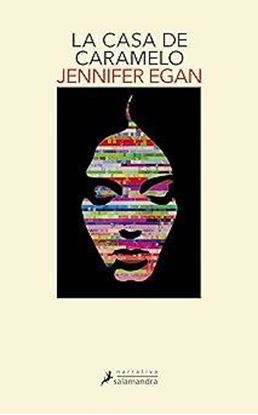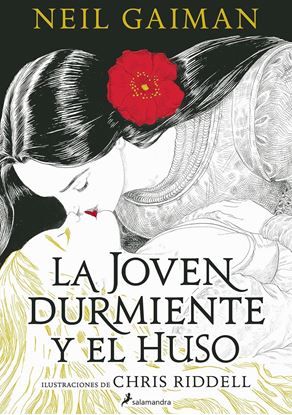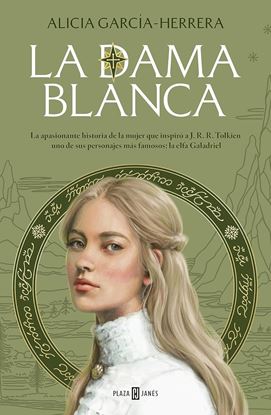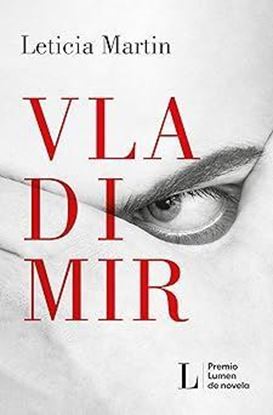

LA CASA DE CARAMELO
La casa de caramelo, que culmina el ambicioso proyecto narrativo de Jennifer Egan iniciado con El tiempo es un canalla (Premio Pulitzer en 2011), cuenta la historia de Bix Bouton, un brillante empresario informático en horas bajas que acaba patentando una exitosa herramienta tecnológica que permite acceder a nuestros recuerdos y compartirlos, y que ha seducido a miles de personas. Con una asombrosa variedad de recursos narrativos, Egan pone el foco en el mundo digital y de las redes sociales y nos cuenta la historia de diversos personajes que buscan una conexión real en un mundo cada vez más digitalizado e hiperconectado.
995
746
LA JOVEN DURMIENTE Y EL HUSO
Era una de esas brujas de los bosques, condenada a la marginación mil años atrás, una mala persona. Maldijo a la pequeña el día que nació, para que, cuando la joven cumpliera dieciocho años, al pincharla con un huso en el dedo se durmiera para siempre.
A vuelo de pájaro, era el reino más cercano al de la reina, pero ni siquiera los pájaros volaban sobre él.
Esta historia tal vez os resulte familiar: hay una joven reina a punto de casarse. Hay algunos enanos buenos, fuertes y valientes; hay un castillo rodeado de una maraña de espinos; y hay una princesa a la que, según se rumorea, una bruja condenó al sueño eterno.
Pero aquí nadie espera que aparezca un noble príncipe montado en su fiel corcel y dispuesto a arreglar las cosas. Si una joven reina quiere demostrarse a sí misma que puede ser una heroína, rescatar a una princesa es una ocasión perfecta...
Este cuento de hadas está urdido con un hilo de magia negra que gira sinuosamente, arrojando apasionantes brillos y reflejos que sorprenderán a lectores de todas las edades.
1,450
1,088
LA DAMA BLANCA
Frente del Somme, octubre de 1916. Tras el ataque a la trinchera Regina el oficial de señales J. R. R. Tolkien enferma de fiebre quintana. Las condiciones de debilidad extrema en las que se encuentra hacen que sea evacuado al hospital número uno de la Cruz Roja, ubicado en el Casino de Le Touquet-Paris-Plage. Allí es atendido por la enfermera voluntaria Gala Eliard, una fascinante aristócrata que huye de un pasado tormentoso y a la que le impulsa la necesidad de salvar la vida de al menos un solo hombre. El breve encuentro entre ambos, que tiene lugar durante tan solo ocho días, cambiará para siempre el mundo creativo del escritor y encenderá la chispa que inspirará la creación de uno de sus personajes más poderosos, la elfa Galadriel, y del que será uno de los mayores fenómenos literarios del siglo XX.
1,500
1,125
EL CORREDOR (MAPA DE LAS LENGUAS)
El corredor es un alarido de metal y literatura cuya virtud primordial es llevar al lector a un paroxismo, a esa exaltación propia de los derviches y pilotos cuyos bólidos están avizorando, en fracciones de segundo, la pared donde habrán de estrellarse, el fuego donde serán desgarrados por engranajes y ángulos enfurecidos. Alejandro Vázquez Ortiz ha logrado escribir un mecanismo narrativo cromado, con varias capas de pintura, donde conviven la violencia y la desesperación, donde el vértigo y el vacío son las únicas certezas. Aceite quemado, autopistas interminables que brillan en el desierto como pistones al rojo vivo, un terraplén de grava y concreto habitados por automóviles, sangre y dolor. Esta novela no es ajena a un fetichismo, no es ajena a nosotros, humanos al borde de todo. Y eso es lo que la vuelve memorable.
995
746
AMOR EN JUEGO
A VECES TU LUGAR EN EL MUNDO NO ES UN «DÓNDE» SINO UN «QUIÉN».
Adalyn Reyes siempre ha estado centrada en los Miami Flames. Sin embargo, su impecable carrera se ve afectada cuando el vídeo de un altercado con la mascota del equipo se hace viral. En consecuencia, el dueño del club (que casualmente es también su padre) la manda a un pueblo en mitad de la nada para que reflote el equipo de fútbol local. Adalyn está dispuesta a dejarse la piel para conseguirlo, pero no contaba con que sus jugadores serían un grupo de niñas de nueve años con tutú y una cabra como mascota.
Además, Cameron Caldani, exportero y leyenda del fútbol, también se encuentra en el pueblo, aunque su presencia allí es todo un misterio. Cam es el candidato perfecto para ayudarla, pero después de un primer encuentro un tanto accidentado (quien dice «accidentado» dice «lo atropellécon el coche»), en los planes del futbolista de élite solo cabe deshacerse de ella cueste lo que cueste. Sin embargo, marcharse no es una posibilidad para Adalyn, que no descansará hasta recuperar su antigua vida. Con o sin la ayuda de Cam.
¿TE ATREVES A JUGARTE EL CORAZÓN?
1,400
1,050
VLADIMIR
Guinea ve truncada su carrera como profesora en una universidad de Estados Unidos tras salir a la luz su relación con un alumno mucho más joven que ella. Huyendo del escándalo y en busca de una nueva vida llega al aeropuerto de Buenos Aires, donde descubre que se ha producido un apagón general. Con el teléfono sin red, es incapaz de localizar su destino. Un hombre inquietantemente amable la conduce por la ciudad y le propone alojarse con él y con su hijo adolescente, Vladimir, mientras continúe la situación. Sin combustible ni alimentos, la calle se vuelve un escenario peligroso: todos contra todos. Sin embargo, la mayor violencia late invisible dentro de la casa donde los tres conviven junto a dos perros. Guinea y Vladimir sienten pronto una complicidad que los enfrenta al padre. Otra vez un deseo turbio que ordena y produce el caos, un deseo más fuerte que la sangre y el amor.
Vladimir es una novela profundamente perturbadora, un thriller emocional y erótico en el contexto de un mundo que se apaga.
995
746














